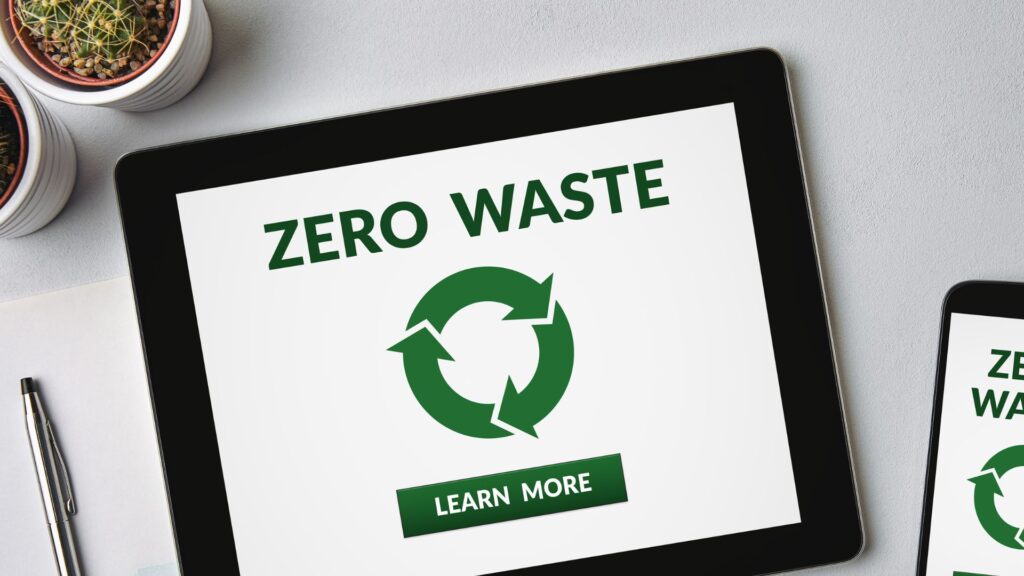Introduction:
In today’s dynamic business landscape, the integration of sustainable practices has become imperative. One key approach gaining traction is the adoption of a Zero Waste Strategy. In this comprehensive blog post, we’ll delve into the intricacies of crafting and implementing a robust zero waste strategy, exploring its benefits, challenges, and practical steps to achieve a more sustainable future.
Understanding the Zero Waste Strategy
Definition and Importance: A Zero Waste Strategy is a comprehensive approach aimed at minimizing waste generation and promoting recycling, reuse, and responsible disposal. It holds profound importance in mitigating environmental impact, conserving resources, and aligning businesses with global sustainability goals.
Benefits of Zero Waste Strategy: Embracing a zero waste approach yields multifaceted benefits. It enhances environmental stewardship, reduces landfill contributions, fosters a positive corporate image, and often leads to cost savings through efficient resource utilization.
Crafting Your Zero Waste Strategy

Conducting a Waste Audit: The first step in crafting a robust strategy is to conduct a thorough waste audit. This involves analyzing current waste streams, identifying sources, and quantifying waste types. The insights gained from this audit lay the foundation for tailored waste reduction initiatives.
Setting Clear Objectives: Define specific, measurable, achievable, relevant, and time-bound (SMART) objectives for your waste free strategy. Whether it’s reducing single-use plastics, increasing recycling rates, or optimizing packaging, clear objectives guide the implementation process.
Engaging Stakeholders: A successful zero waste strategy involves collaboration across the entire organization. Engage employees, suppliers, and customers in the initiative. Establishing a culture of sustainability requires everyone’s commitment.
Implementation of waste free practices
Reducing Single-Use Plastics: Single-use plastics contribute significantly to environmental pollution. Implementing alternatives, encouraging reusable options, and collaborating with suppliers for sustainable packaging are key steps in reducing this environmental burden.
Promoting Recycling Initiatives: Establish and promote recycling initiatives within your organization. Clearly communicate recycling guidelines, set up designated bins, and collaborate with local recycling facilities. Consider innovative solutions, such as partnering with recycling companies that specialize in challenging materials.
Embracing Circular Economy Practices: Transitioning to a circular economy is fundamental to a zero waste strategy. Explore ways to extend the life cycle of products through repair, refurbishment, and recycling. Design products with recyclability in mind to minimize waste generation.
Overcoming Challenges in Zero Waste Implementation
Educating and Training: A lack of awareness and understanding can hinder the success of a waste free strategy. Prioritize education and training programs to ensure everyone in the organization understands the goals and their role in achieving them.
Navigating Regulatory Compliance: Adherence to waste management regulations is critical. Stay informed about local, regional, and national waste regulations to avoid legal complications. Align your strategy with existing laws and anticipate changes in legislation such as CSRD & CSDDD.
Measuring Success and Continuous Improvement
Implementing Key Performance Indicators (KPIs): Establishing KPIs allows you to measure the success of your zero waste strategy. Track metrics such as waste diversion rates, reduction in landfill contributions, and the adoption of sustainable practices.
Continuous Monitoring and Adaptation: A waste free strategy is an evolving process. Regularly monitor progress, seek feedback from stakeholders, and be open to adapting the strategy based on insights gained. Continuous improvement is key to long-term success.
Conclusion:
In conclusion, adopting a Zero Waste Strategy is not just a sustainability trend; it’s a fundamental shift toward responsible business practices. By crafting a well-defined strategy, engaging stakeholders, and implementing practical initiatives, organizations can contribute significantly to a greener, more sustainable future. Embrace the journey toward zero waste, and make a positive impact on the planet and your bottom line.
Contact us if you want to implement Zero Waste to your business environment.
